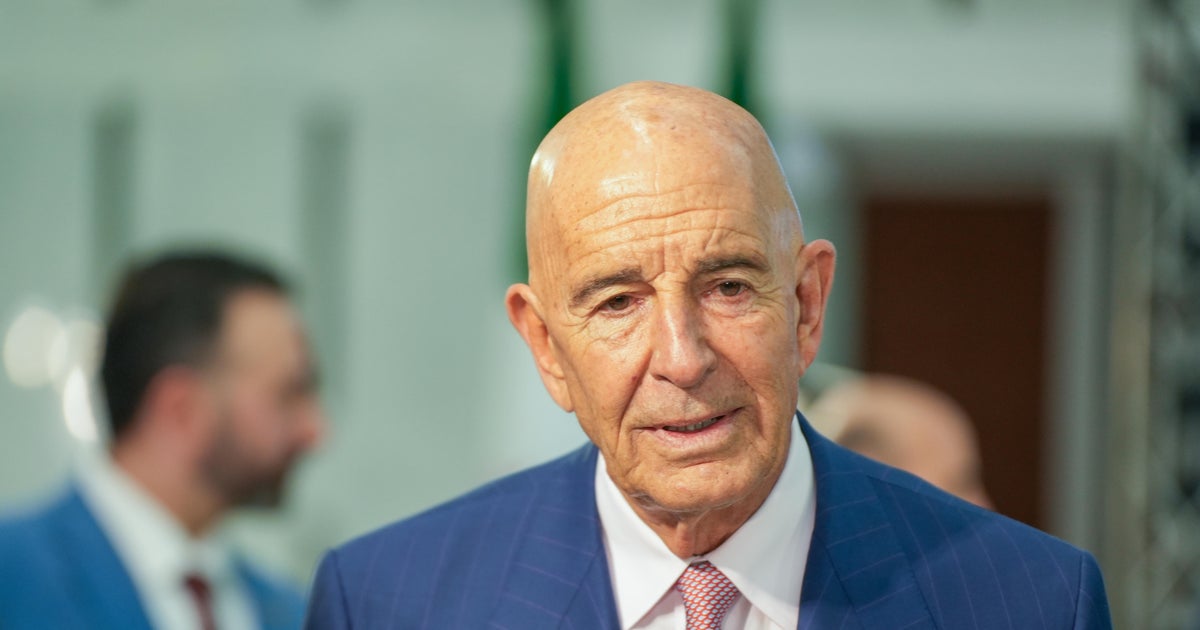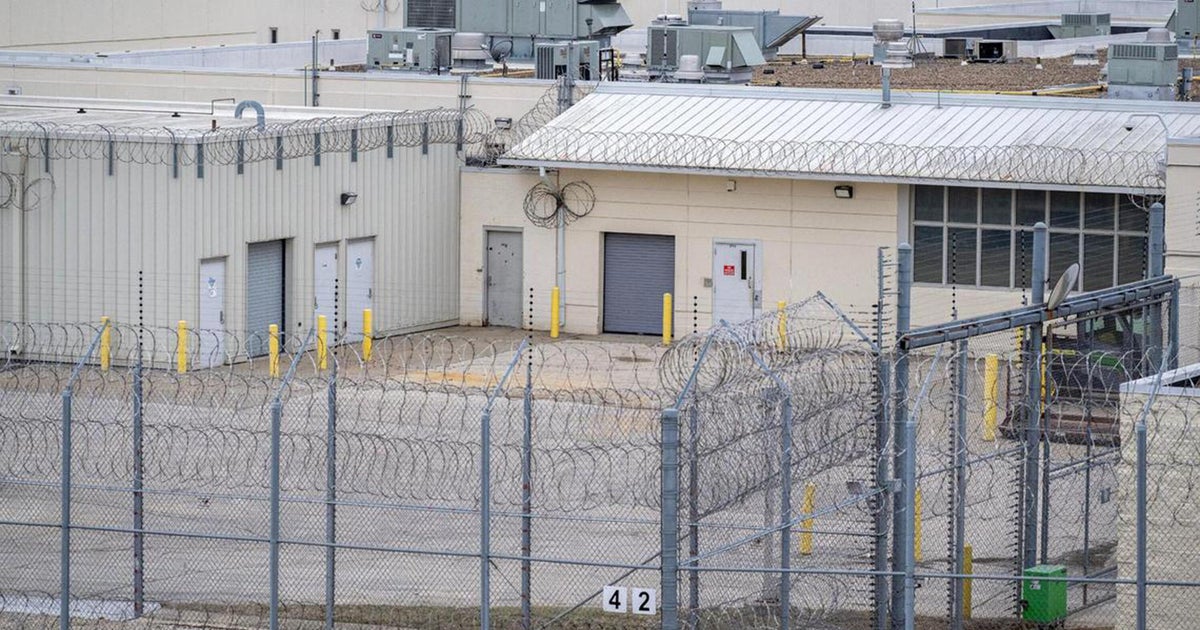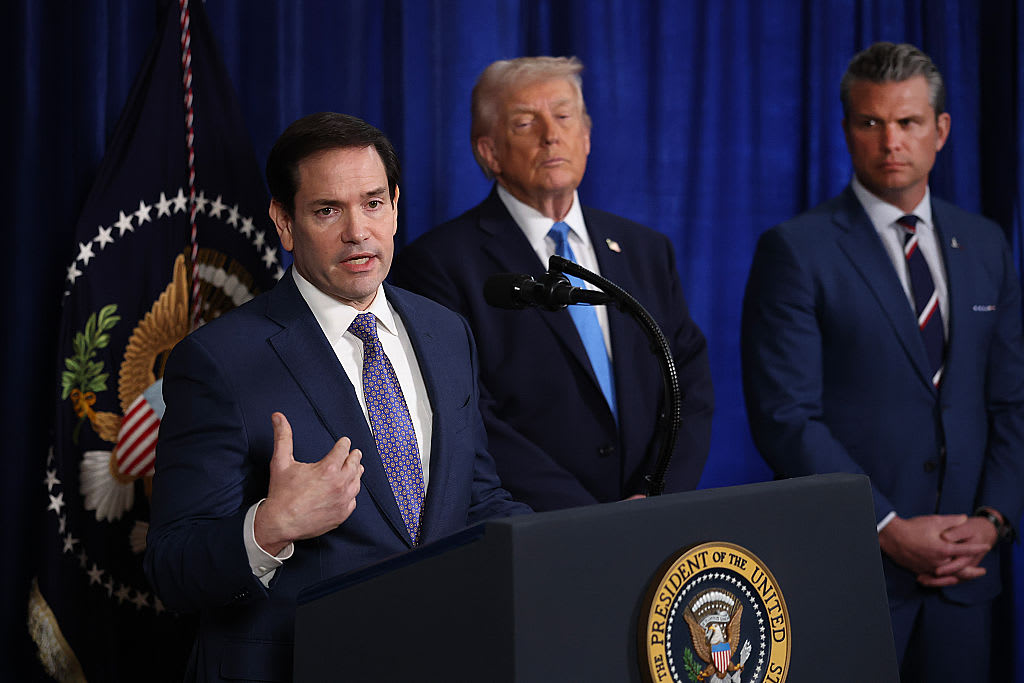Does a president have the right to withhold privileged documents from the National Archives?
Former President Donald Trump's attorneys say executive privilege should protect records seized this month from his residence in Florida, as the legal battle over who should control the Trump presidency's records continues.
Trump's attorneys, who have requested that a "special master" review documents taken in the Aug. 8 search, argued in a filing Monday that documents from Trump's presidency are "presumptively privileged." Trump has been trying to shield these and other records from the FBI. A May letter from the acting U.S. archivist to Trump's attorneys released Tuesday shows Trump's team attempted to claim a "protective assertion of executive privilege" so that the National Archives and Records Administration (NARA) wouldn't hand the FBI records he had voluntarily returned earlier this year.
The FBI search of Trump's Mar-a-Lago residence, which unearthed 11 sets of classified documents, stemmed from Trump's failure to give these records to the Archives when he left office or at any time since then when NARA demanded them.
Not only does the former president want to keep investigators from seeing the records he initially returned to the Archives, but he also wants "privileged" documents back in his custody.
"[T]he FBI, in its now famous raid of Mar-a-Lago, took boxes of privileged 'attorney-client' material, and also "executive" privileged material, which they knowingly should not have taken," he said in a post on Truth Social. "By copy of this TRUTH, I respectfully request that these documents be immediately returned to the location from which they were taken. Thank you!"
But does Trump or any president have the right to withhold material protected by executive privilege from the National Archives — or to retain possession of it?
What is executive privilege?
Executive privilege is a constitutional doctrine based on the separation of powers. Under this doctrine, the president has the right to shield his deliberations with aides from the congressional and judicial branches in some cases.
But legal experts say Trump's attorneys will have a hard time arguing that the president's records should be withheld from the National Archives or the FBI based on executive privilege.
Limits of executive privilege
Executive privilege is rooted in the separation of powers of the executive, legislative and judicial branches. NARA is a part of the executive branch, as is the FBI. A former president can try to assert executive privilege to maintain the privacy of certain records, but those claims may be overruled by the current president. That's what happened when Trump tried to block the House select Jan. 6 committee from obtaining records held by the Archives. The Biden White House refused to block it, and the Supreme Court determined Trump could not stop it.
In the 1977 case Nixon v. GSA, the Supreme Court ruled that a former president may not successfully assert executive privilege "against the very executive branch in whose name privilege is invoked," as the National Archives explained in its May 2022 letter to Trump's attorney, which became public this week. In Nixon v. GSA, Nixon challenged a new Presidential Recordings and Materials Act, passed because of Watergate, as a violation of the separation of powers and his own privacy rights. Nixon lost that case.
An earlier case, United States v. Nixon, established that executive privilege is not absolute, and does not shield a president from handing over records in a criminal prosecution. The special prosecutor in charge of the case wanted Nixon's taped discussions with his aides. The Supreme Court determined that Nixon's concerns were outweighed by the needs of the investigation.
In her May 10 letter to Trump's lawyer, Acting Archivist Debra Wall said the FBI clearly had the right to review material Trump had kept at Mar-a-Lago, to determine whether any national security damage had been done by storing government secrets at a private club in Palm Beach.
"The question in this case is not a close one," Wall wrote to Trump attorney Evan Corcoran. "The Executive Branch here is seeking access to records belonging to, and in the custody of, the Federal Government itself."
Wall said she had arrived at her determination after consulting with the Justice Department and the Biden White House counsel's office, and the courts will now determine whether her argument prevails.
The Biden White House might agree that some records in the boxes hold material that should be kept from the public – even if they're not classified – if they contain what a key executive order calls the "deliberative process of the executive branch." But that decision would be left to the sitting president, and even if Mr. Biden were to agree to keep the records out of the public eye, it would not mean that Trump should have the records in his personal possession.
What the Presidential Records Act says about privileged material
Nixon's transgressions during Watergate spawned The Presidential Records Act (PRA), a law that shifted the legal ownership of official records of a president from private to public. Presidential records are not "private," said Jason R. Baron, former director of litigation at NARA. They belong to the American people. But there are restrictions on public access to presidential records that contain personal or privileged information, he added.
The PRA allows the public to access presidential records through the Freedom of Information Act five years after the end of an administration, although a president may invoke restrictions prohibiting public access for some records for up to a dozen years. Early in his presidency, Trump told NARA he would request the 12-year restriction. However, the website for Trump's presidential library says that the records of his administration will be subject to Freedom of Information Act requests in 2026, five years after the end of his presidency.
Although the law provides a five-year period of inaccessibility, there are exemptions that may apply. The Archives decided that the exemption applied in Trump's case and that the records could be released to the FBI and the Justice Department. This is spelled out in Wall's May letter, which states that though the PRA "generally restricts access" to presidential records in the Archives' custody for "several years" after a president has left office, under the statute, "subject to any rights, defenses, or privileges which the United States or any agency or person may invoke, such records shall be made available to an incumbent President if such records contain information that is needed for the conduct of current business of the incumbent President's office and that is not otherwise available."
The law does distinguish between personal records such as correspondence with a child or a birthday card, which a former president may keep, and presidential records, which have to do with the business of governing and must be kept with the National Archives.
"Presidential records are records in the White House relating to the constitutional, statutory or other official or ceremonial duties of the president," Baron said. "Personal records such as diaries, journals or other personal notes that are not prepared or used or communicated for government business are excluded from the definition of what constitutes a presidential record."
It's possible some of the material Trump had in the seized boxes is personal. The Presidential Records Act requires that the president and his staff take all the steps they can to file personal records and presidential records separately. In the Trump administration, personal and presidential records may have been mixed together. The Archives has already established that Trump's handling of records did not adhere to its standards, noting in a statement that the former president had tried to destroy documents, that "officials during the Trump Administration recovered and taped together some of the torn-up records."
Under the Presidential Records Act, the outgoing president is responsible under the law for giving all his official records to the National Archives before he has left office.
"The PRA sets out a scheme that says that on noon of Inauguration Day or whenever after a president leaves office, presidential records are immediately subject to the legal custody of the National Archives and Records Administration," Baron said. "A former president has no right to have presidential records residing elsewhere outside NARA's legal custody."
So, whether the records are privileged or not, if they are records of the presidency, they are to be held in the custody of the National Archives, not at Mar-a-Lago. Personal records are the only ones that the president may keep after leaving office.



